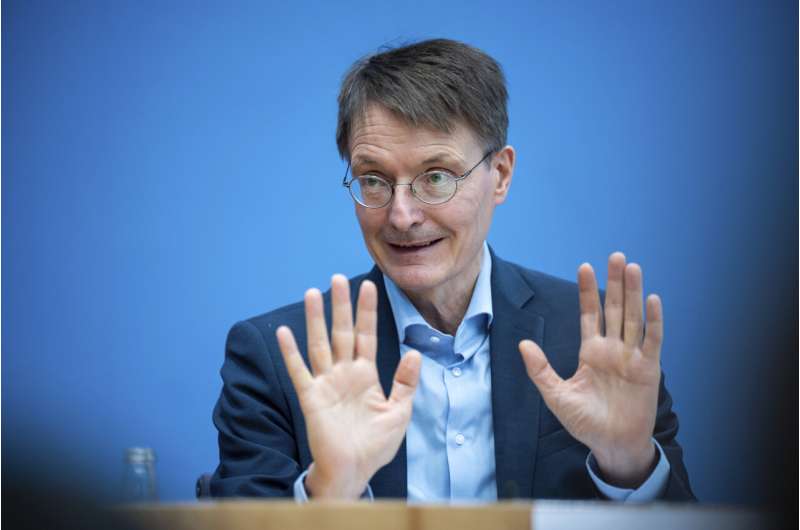
Germany is scrambling to procure more vaccines to fuel what the new health minister on Thursday called a “very offensive” and fast booster strategy that would leave the country better prepared for the onslaught of the new omicron variant.
Germany on Wednesday administered nearly 1.5 million shots, its highest one-day total so far. As its vaccination campaign has revved back up, an average of some 988,000 people per day have been vaccinated over the past week.
The proportion of Germany’s population of 83 million that has been fully vaccinated now stands at 70%—a number that officials, who had set a minimum target of 75%, aren’t satisfied with. And 27.6% also have received a booster shot, a figure that is rising quickly.
Health Minister Karl Lauterbach said that “we will try with a very offensive, fast booster strategy to keep the omicron variant as small as possible to avoid overloading the health system and possibly society as a whole.”
But Lauterbach told reporters he wasn’t satisfied with an inventory of vaccine delivery plans for the rest of December and next year’s first quarter after he took office last week in the new government of Chancellor Olaf Scholz, because “it simply isn’t enough for such a vaccination strategy.”
With those delivery numbers, “the booster campaign would be finished at the end of March, and we can’t work with that,” Lauterbach said.
He said his ministry launched efforts to remedy that on Saturday, and has secured the European Union’s approval to get the delivery of 35 million doses from Moderna moved forward.
Lauterbach said he is negotiating with other countries, including Romania, Poland, Portugal and Bulgaria, to secure more vaccines. Germany also hopes to get doses of the BioNTech-Pfizer vaccine that have been adapted to the omicron variant in the first quarter.
The minister said he expects that “the booster vaccination and possibly also a fourth vaccination will be the central pillars of a successful strategy.”
Omicron hasn’t yet become a major factor in Germany, unlike in Britain. But the country is only now seeing a wave of infections caused by the still-dominant delta variant, its biggest so far, recede slowly. There are signs that restrictions imposed in recent weeks are beginning to have an effect.
Lothar Wieler, the head of the Robert Koch Institute, Germany’s disease control center, said that “a few hundred cases” of omicron have been registered so far, and it has been found in all 16 German states.
Wieler warned that Germans need to make sure the Christmas period doesn’t provide a “kick-start for omicron,” recommending that they spend the time with close family and reduce their contacts.
Source: Read Full Article